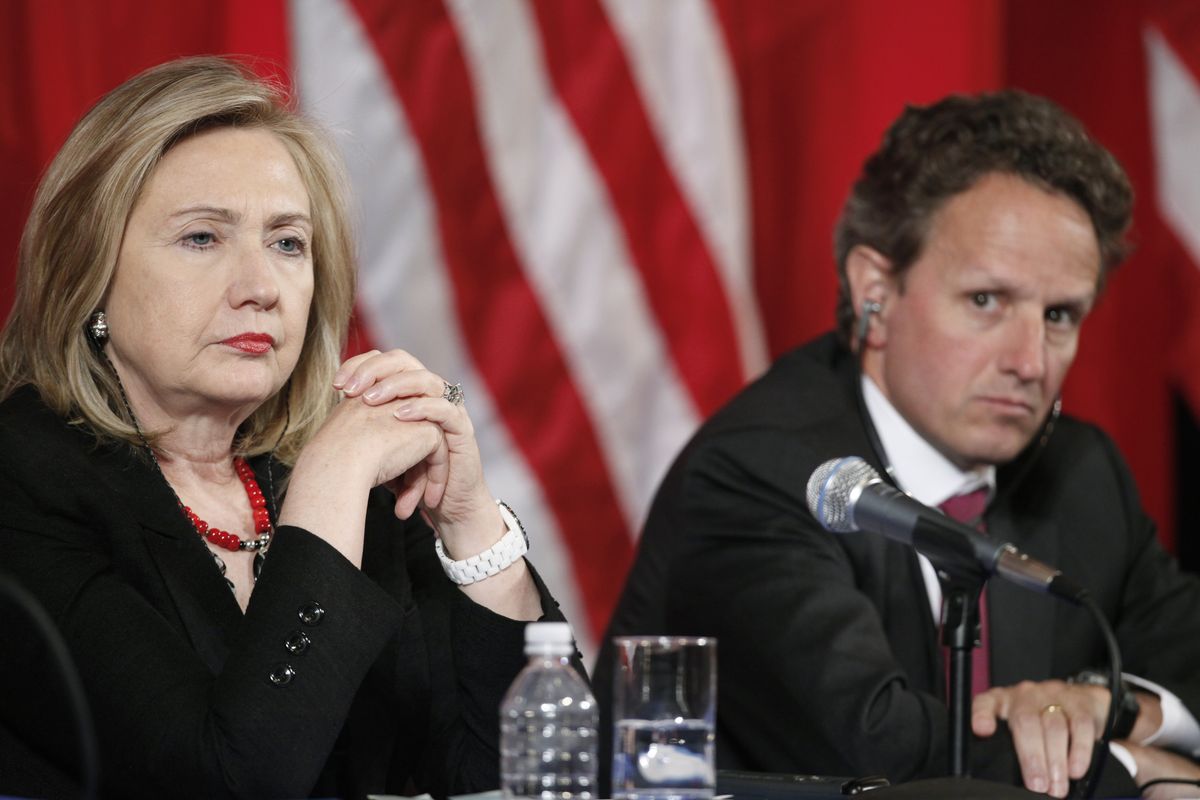U.S.-China talks feeling strain
Embassy reportedly shielding activist, and warplanes may be sold to Taiwan

WASHINGTON – Less than a week before annual U.S.-Chinese diplomatic and economic talks, relations between the powers risked sharply deteriorating Saturday with an escaped Chinese activist reportedly under American protection and a U.S. fighter jet sale to Taiwan now being considered.
Fellow activists say Chen Guangcheng, a blind lawyer who exposed forced abortions and sterilizations as part of China’s one-child policy, fled house arrest a week ago and has sought protection at the U.S. Embassy in Beijing.
Neither the U.S. nor Chinese government has confirmed the reports, but the saga looks set to overshadow this coming week’s Strategic and Economic Dialogue in the Chinese capital. Secretary of State Hillary Rodham Clinton and Treasury Secretary Timothy Geithner are leading the U.S. side at the talks beginning Thursday.
A potential further complication is a letter from the White House director of legislative affairs, Rob Nabors, to Sen. John Cornyn, R-Texas, explaining that the Obama administration would consider selling new U.S. warplanes to Taiwan. A sale would infuriate China, which considers the island nation an integral part of its state even after their split more than six decades ago.
Chen’s status and the fighter jets represent the latest strains in Washington and Beijing’s up-and-down relationship in recent years. President Barack Obama has sought to “pivot” American military might and diplomatic energy toward Asia to improve America’s standing in the region and check the expansion of Chinese power, and achieved mixed results.
The two issues underscore the fundamental disconnect between the world’s No. 1 and No. 2 economies, the top importer and exporter, and the biggest military and the fastest developing, on issues from human rights and Taiwan to currency policy and combating nuclear-armed North Korea and potentially nuclear-armed Iran.
A Texas-based activist group that has been active in promoting Chen’s case said China and the U.S. were discussing the fate of the 40-year-old.
“Chen is under U.S. protection and high-level talks are currently under way between U.S. and Chinese officials regarding Chen’s status,” said a statement from the ChinaAid Association. It cited a source close to the situation.
The U.S. Embassy in Beijing declined comment. Chinese Vice Foreign Minister Cui Tiankai said he had no information on Chen’s case.
The case is so sensitive that officials in Washington have been ordered not to say anything about it at all. That was underscored on Friday and Saturday by the absolute refusal of the White House to speak out on the matter.
After making several public appeals this year for Chen’s release, State Department spokeswoman Victoria Nuland would say only that “we have spoken out about his case in the past.”
The top U.S. diplomat for Asia, Assistant Secretary of State Kurt Campbell, originally was due in Beijing in the coming week, but he arrived early today in the capital and did not speak to reporters. Earlier, department officials in Washington had ignored or declined to respond to questions about indications that Campbell had been dispatched earlier than planned to smooth things over with the Chinese.